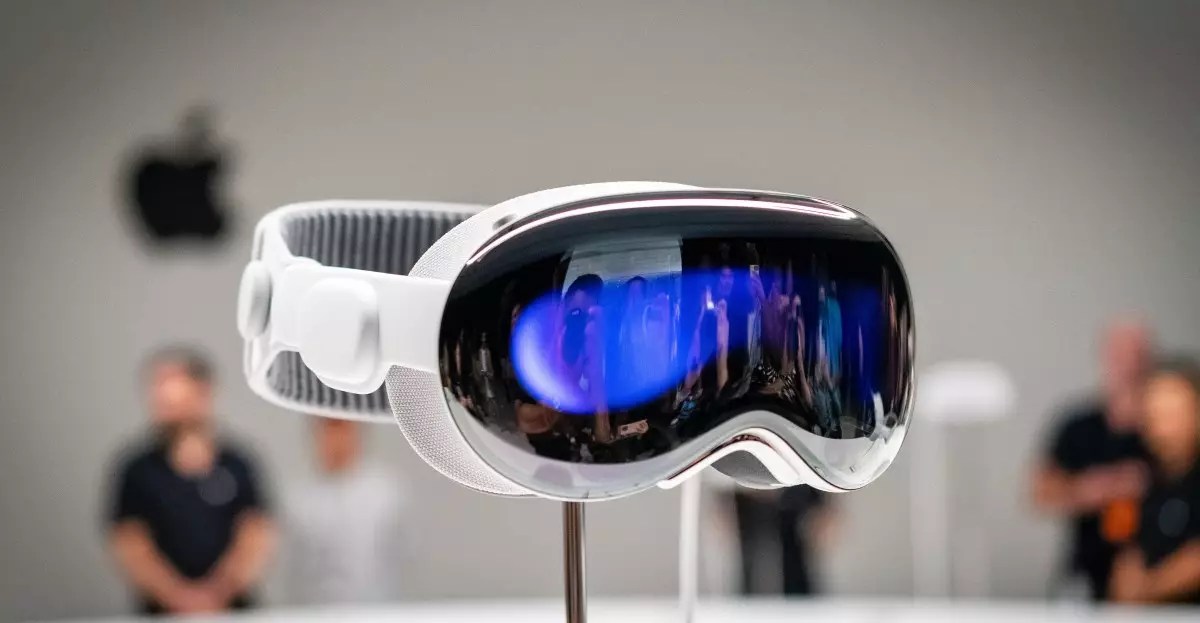In the rapidly evolving world of technology, proprietary knowledge is the most coveted asset. Companies like Apple invest billions into research, innovation, and product development, making proprietary information an invaluable resource. When an employee chooses to take sensitive data to a competitor, it sparks not just a legal conflict but a profound ethical debate. Such incidents threaten the very bedrock of trust within the tech industry, fueling fears of corporate espionage and undermining innovation. It’s a stark reminder that in this high-stakes arena, safeguarding intellectual property isn’t just about legal clauses—it’s about protecting the future of technological progress.
The Actions and Allegations That Shake Trust
This recent lawsuit exemplifies how delicate the line between employment and theft can become. Apple accuses a former senior design engineer, Di Liu, of illicitly downloading thousands of proprietary documents related to the Vision Pro headset—Apple’s flagship innovation—prior to leaving for Snap. The details suggest a calculated effort: the employee allegedly manipulated and concealed files, moving them to personal cloud storage before his departure. Apple’s claim that Liu falsely claimed health issues to mask his true motives raises serious concerns about transparency and integrity. Moreover, the fact that Liu’s activities occurred during his last days at the company, after being granted access, exposes the vulnerabilities inherent in current security protocols.
The Broader Implications for Industry and Innovation
This case highlights the urgent need for industries to reevaluate their approach to employee data management. While access controls are standard practice, the ability of employees to quietly download and conceal sensitive information demonstrates the gaps in existing security measures. The allegations that Liu’s downloaded files overlap with Snap’s AR Spectacles product suggest an intent to leverage stolen ideas for competitive advantage, which could have long-term implications for innovation ecosystems. It’s not just about safeguarding current assets but also about preventing any erosion of fair competition. Companies that fail to implement robust internal controls risk fostering environments where proprietary information can be exploited, hampering industry progress and consumer trust.
The Ethical Dilemma and Its Consequences
On an ethical level, this case forces us to confront questions about loyalty, professional responsibility, and the moral obligations of employees in the innovation economy. Are employees entitled to take knowledge they’ve acquired during their tenure? The law often suggests otherwise, emphasizing that proprietary information is the property of the employer. Yet, the temptation to transfer valuable insights to a competing firm under the guise of career advancement creates a dangerous precedent. For companies, the challenge lies in balancing trust with vigilance—creating a culture that discourages misconduct while fostering innovation. For employees, it’s a reminder that crossing ethical boundaries can lead to severe legal and professional repercussions, tarnishing careers and damaging personal reputations.
The Future of Corporate Security and Employee Loyalty
As lawsuits like Apple’s continue to surface, it becomes evident that technological and legal safeguards alone are insufficient. The real challenge involves cultivating a corporate culture rooted in integrity and transparency. Robust employee onboarding, continuous monitoring, clear communication about confidentiality, and swift legal action are all vital tools in defending against corporate espionage. Yet, perhaps the most crucial lesson is the importance of trust—trust that can only be maintained through ethical behavior and mutual respect. The evolving landscape demands a proactive stance: companies must prioritize not only compliance but also fostering an environment where innovation and integrity can coexist harmoniously.
In the end, the delicate clash between individual ambition and corporate loyalty defines the modern tech industry’s ethical terrain. It’s a high-stakes game that requires vigilance, integrity, and a deep understanding that the true value lies not just in the products we create but in the trust we uphold.


Leave a Reply